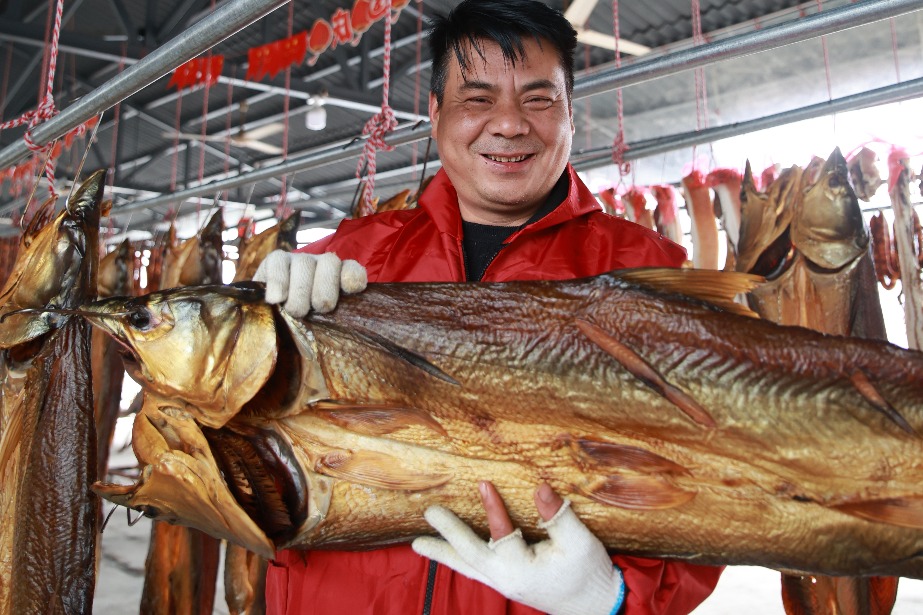Xi-Biden meeting may lead to more pragmatic relations that benefit all, say analysts

The virtual meeting between Chinese President Xi Jinping and US President Joe Biden may help pave the way to a "pragmatic working relationship" that will benefit not only both sides but also other trading partners that rely on stable relations between the two major powers, analysts said.
The Nov 16 meeting between the two leaders was the first of its kind since Biden took office in January, despite their talks twice over the phone, in February and September.
During the three-hour discussions, Xi said China and the United States "should respect each other, coexist in peace, and pursue win-win cooperation".
He expressed the hope that Biden will demonstrate political leadership and steer America's China policy back on the track of reason and pragmatism.
"As the world's two largest economies and permanent members of the UN Security Council, China and the US need to increase communication and cooperation, each run their domestic affairs well and, at the same time, shoulder their share of international responsibilities, and work together to advance the noble cause of world peace and development," Xi said.
Lucio Blanco Pitlo III, research fellow at the Manila-based foreign policy think tank Asia-Pacific Pathways to Progress Foundation Inc, welcomed the virtual meeting, noting that it is a "good signal for the world that the two major powers are finding ways to engage in a high-level dialogue".
The China-US virtual meeting can lead to "a working relationship that is pragmatic and acceptable to both sides," said Oh Ei Sun, senior fellow at the Singapore Institute of International Affairs.
Oh said no one would like to see increased tension between US and China as that would also hurt trade and investment flows.
He also cited Xi's statement on how a sound and steady China-US relationship can help resolve some of the world's most pressing problems.
Xi said during the virtual meeting that sound and steady bilateral ties are key to finding effective responses to global challenges such as climate change and the COVID-19 pandemic. He said that climate change can well become a new highlight of China-US cooperation.
Oh said both countries have already taken the first step towards that direction when China and US have agreed to boost climate cooperation during the United Nations Climate Change Conference (COP26) that concluded on Nov 12 in Glasgow, Scotland.
China and the US issued a joint declaration in COP26 where they pledged to enhance actions on climate change. The declaration was widely welcomed and is expected to strengthen global climate action.
"Xi has identified the pandemic and climate change as potential areas for cooperation. In the recently concluded (COP26) meeting in Glasgow, US and China worked well. They joined hands to lower (the global) temperature. That's a good start," Oh said.
Pitlo of APPFI said the joint statement on climate change is a "good platform for cooperation". He also sees the China-US dialogue as a way to ease tension, noting that the two sides may use the dialogue "to manage strategic competition".
Pitlo said that for member-countries of the Association of Southeast Asian Nations, the tense US-China relationship will continue to complicate efforts by ASEAN countries to engage both partners.
During the meeting, Xi told Biden that China might have to take resolute measures, should the separatist forces for "Taiwan independence provoke us, force our hands or even cross the red line."
He attributed the new wave of tensions across the Taiwan Strait to the repeated attempts by the Taiwan authorities to look for US support for their independence agenda as well as the intention of some Americans to use Taiwan to contain China.
Koh King Kee, president of the Centre for New Inclusive Asia, a Kuala Lumpur-based think tank, said the key message from both leaders is that "both sides are sincere in wanting to reduce the tension between the two countries and improve their relationship".
Koh expects the US' policy on China will likely to continue to involve competition, cooperation and confrontation. He hopes to see more cooperation than confrontation after the virtual meeting.
"China will remain firm on issues like Taiwan, Xinjiang, Tibet and Hong Kong. China will not compromise… however, I would expect some easing of trade relations. Very likely, the US side will lift some tariff on Chinese goods because the US is also pressured by (rising) inflation," he said.
Koh said the ASEAN countries will welcome improved relations or eased tension between China and the US because ASEAN countries do not want to take sides in the China-US rivalry.
"ASEAN centrality is the consensus of all ASEAN member states," he said.
- Top Chinese mainland, Hong Kong finance education institutions ink partnership to deepen ties
- Lantern Festival lights bring the Dunhuang grottoes to life
- China's 2026 Spring Festival travel rush to begin
- Knocking on the stone-framed door
- Shanghai Science and Technology Museum to reopen soon
- Shanghai celebrates Spring Festival with intl students




































